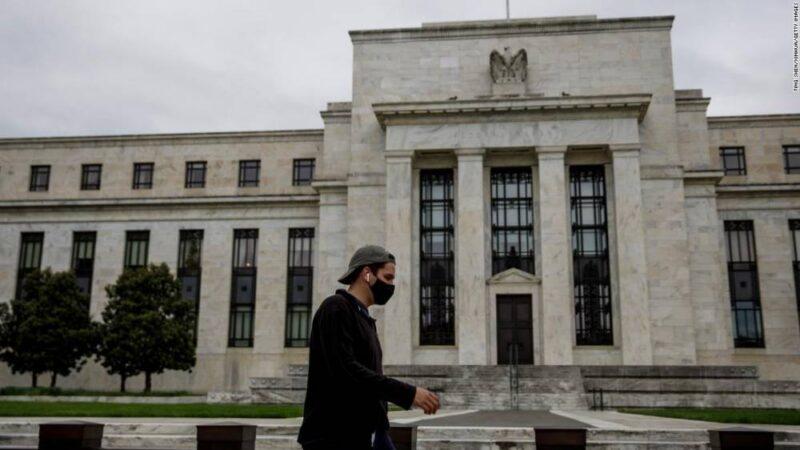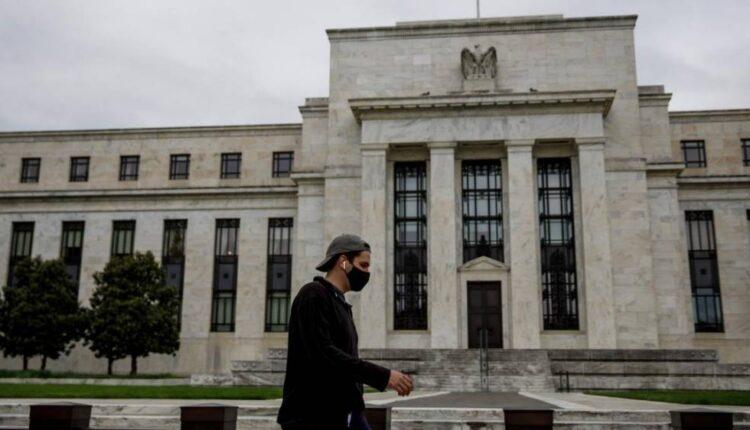A version of this story first appeared in CNN Business’ Before the Bell newsletter. Not a subscriber? You can sign up right here.
London (CNN Business)Even as Florida, Texas and Arizona have set daily records for new coronavirus cases this week, investors received a dose of good news: US retail sales surged 17.7% in May, far more than economists had predicted and a record increase.
Why it matters: The jump is being read as a sign that America’s economy is snapping back from lockdowns faster than expected as shoppers head back to newly reopened stores.”The data indicate that overall spending has started to recover more quickly than we had initially thought and, with many states not easing their lockdowns until well into May, sales look set for a continued recovery in June,” Andrew Hunter, senior US economist at Capital Economics, told clients.
The research firm now forecasts that US output will contract at an annualized rate of 30% this quarter, instead of 40%. (A good reminder: All positive data is relative right now.)
But there’s more to the retail story, my CNN Business colleague Nathaniel Meyersohn points out.Read MoreSales increases were driven by a rebound at clothing and accessories stores, which rose 188% in May, according to the Census Bureau. But the bounce could be short-lived if US consumers become less willing to spend on discretionary items, especially if there’s a sharp increase in the number of coronavirus cases.Additionally, the federal government’s stimulus efforts and enhanced unemployment benefits of an additional $600 a week have boosted retail sales, experts say. The benefits are scheduled to end next month.”Sorry to rain on the parade, but household incomes rose in April thanks to the support of the CARES [Act,] boosting May retail sales,” tweeted Betsey Stevenson, a University of Michigan economics professor. “Don’t expect a similar rise in the coming months with CARES [Act] income support coming to an end.”Hunter has argued that the end of expanded $600 per week payments could “result in a big drop-off in incomes just as the economic recovery is starting to get under way.”But he thinks that with unemployment still high, payments won’t be allowed to lapse entirely — and if they are, more fiscal support from Congress is likely to follow.Federal Reserve Chair Jerome Powell, testifying before US senators on Tuesday, said there’s a “reasonable probability” that more help from both Congress and the Fed will be necessary.”We have a long road ahead of us,” he said. Powell will testify before members of the US House of Representatives on Wednesday.
Could the Federal Reserve start buying stocks?
The Federal Reserve is buying junk bonds and corporate debt ETFs as part of its campaign to revive the American economy. Next on its shopping list could be US stocks Scott Minerd, global chief investment officer at Guggenheim Partners, told my CNN Business colleague Matt Egan.

Star investor: Markets may crash so badly the Fed has to start buying stocksThe S&P 500 has skyrocketed 40% since March 23, when the Fed announced its unprecedented experiment with junk bonds. That surge, coming in the face of the collapse of the real economy, drove up market valuations to levels seen during the dot-com bubble.But Minerd thinks a reckoning is coming, and soon. He expects the S&P 500 will retest its March 23 low of 2,237.40 over the next month, potentially crumbling to as low as 1,600. That would mark a 49% collapse from where the index traded Tuesday during a strong rally.”There’s a point where the Federal Reserve is going to have to pull out a bazooka,” Minerd said. “And I think the option of buying stocks on the part of the Fed is on the table.”Minerd warned his clients back in February — when US stocks were rising to ever greater heights — that there were “red flags” in financial markets.”This will eventually end badly,” he wrote on February 13. “I have never in my career seen anything as crazy as what’s going on right now.”Buying stocks would be a significant escalation in the Fed’s mission to avoid a depression and would face legal obstacles.Technically, the Fed does not have the legal authority to purchase stocks, although former Fed chief Janet Yellen told CNBC in April that the US central bank should seek that power.”I frankly don’t think it’s necessary at this point,” Yellen said. “But longer term, it wouldn’t be a bad thing for Congress to reconsider the powers that the Fed has with respect to assets it can own.”
The economic consequences of the China-India conflict
China and India are locked in a tense diplomatic and military standoff after a deadly border skirmish earlier this week. The economic stakes are high too, given the huge trading relationship and particularly close ties in technology, my CNN Business colleagues Rishi Iyengar and Sherisse Pham report.India imports more goods from China than any other country. And over the past decade, India and China have enabled risen together as emerging technology powerhouses.Now, the dispute threatens those ties. Growing anti-China sentiment in India has led to calls for a boycott of Chinese products and services, while new rules on foreign investment could constrain China’s ability to cash in on India’s internet boom.At least 20 Indian soldiers died after a face-off with Chinese troops along a disputed border in the Himalayas earlier this week, according to the Indian army, raising alarm about an escalating conflict.But deep economic links means decoupling is much easier said than done. Unable to convince India to sign on to its global infrastructure project known as the Belt and Road Initiative, China entered India’s tech scene by flooding the market with cheap smartphones and plowing money into Indian start-ups. And leading Chinese telecommunications equipment maker Huawei, despite a US-led global campaign against its business, is technically still in the running to help build India’s 5G network.
Up next
US housing starts and building permits for May post at 8:30 a.m. ET.
Also today: Federal Reserve Chair Jerome Powell testifies before the House Financial Services Committee starting at 12 p.m. ET.Coming tomorrow: Americans are expected to have filed another 1.3 million initial unemployment claims last week. That would be the 11th straight week of declines.
Source: edition.cnn.com

